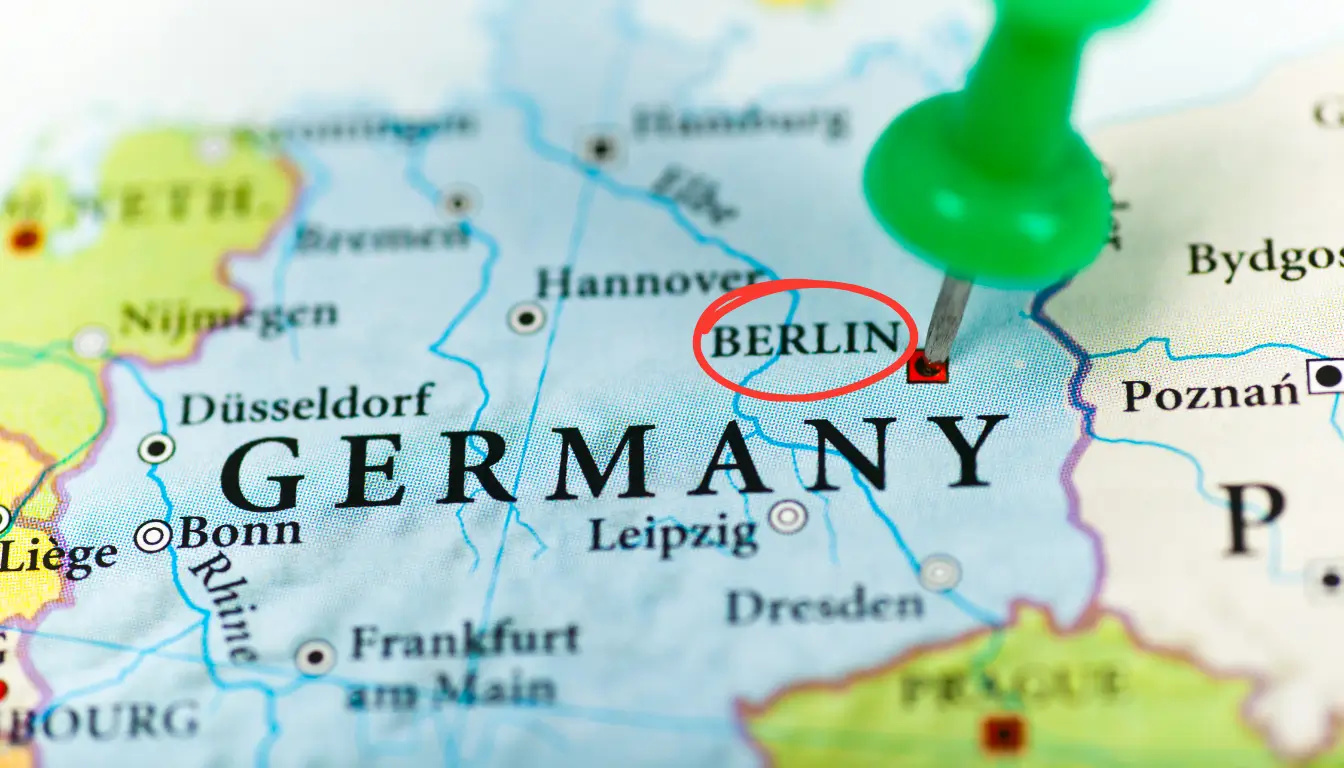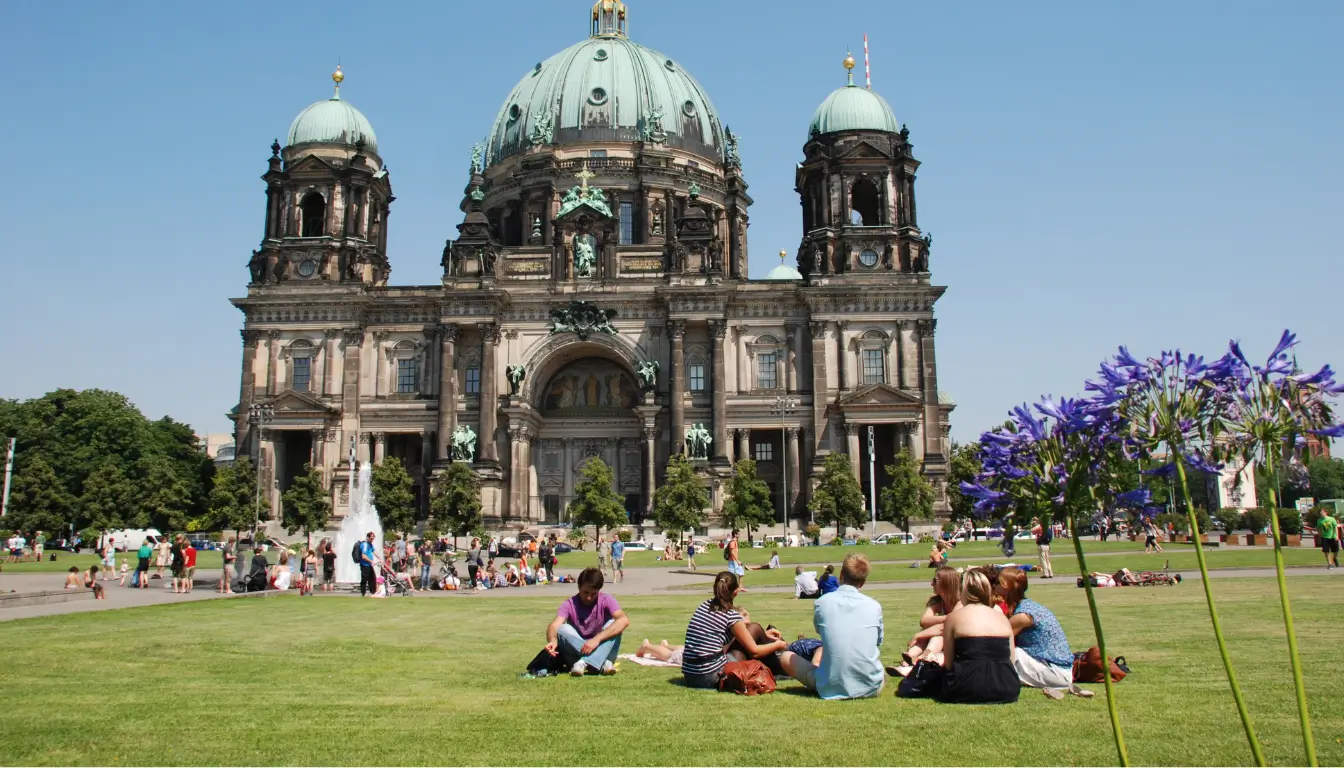Expats in Germany: Berlin From Italian Perspective

Germany has long been one of the most popular destinations for expats living in Europe. Whether it’s job opportunities, education, quality of life, excellent connectivity, or something else entirely, Germany continues to attract expats.
We spoke to Luca, an Italian expat living in Germany who moved to Berlin to pursue his master’s degree in international relations. Currently living in Berlin as an expat, Luca shared his experiences of life and studying abroad in Germany. Below, we highlight the key points from our conversation.
Reasons for Moving to Berlin
Luca decided that moving to Berlin was the best choice for his education. He wanted to experience more in life, and for him, Berlin offered the perfect mix of opportunities and a vibrant academic environment.
The Berlin lifestyle captivated him with its energy, diversity, and constant events. Moreover, he knew Berlin was full of professional opportunities, particularly for those aiming to work in international organizations or NGOs.
He described Berlin as an open and inclusive city, where no one feels like a stranger, and everyone is part of a larger community. Coming from Italy, where warmth and sociability are the norm, Luca was grateful to find a place where he could be himself without fear of judgment. For expats, such inclusivity can make the challenges of living abroad easier. With that, the process of integration in Germany was smoother. While challenges will always exist, this kind of welcoming atmosphere can help expats feel more at home.
Adjusting and Integrating into Berlin Life
Luca described his integration into Berlin life positively, filled with excitement but also accompanied by challenges. At first, he experienced the "honeymoon phase," common for expats. The liveliness of the city, the international crowd, and endless activities overwhelmed him in the best way. He was so stimulated by it all that he didn’t know where to start. But, as he put it, reality eventually caught up.
Language Barrier
The first challenge was the language barrier. Although he knew basic German, it wasn’t enough. Whether shopping or communicating socially, he often felt nervous or like a lost tourist. He decided to take a German course, which later helped him feel more independent and confident living in Berlin.
Expat Loneliness
Another challenge was occasional loneliness, even though he enjoyed living alone in Berlin. He admitted that in such a big city full of people, it’s easy to miss the familiarity of home. Like many expats, he faced moments of isolation but found it manageable. He used this as motivation to keep himself busy, establish routines, and meet new people.
One thing he highlighted as a major positive was Berlin’s sense of freedom and tolerance. He never felt pressured to conform or change his culture, which is how he avoided issues like identity crisis, cultural shock, and cognitive dissonance as an Italian expat.
Professional and Educational Aspects of Living in Berlin
Italian vs. German Educational Experience
When comparing studying abroad in Germany to his experiences in Italy, Luca noted the German focus on practical skills as something new and refreshing. In Italy, his education was more theoretical, which he described as rote learning. Studying in Berlin, on the other hand, introduced him to hands-on projects, teamwork, and collaborations with international organizations.
However, he mentioned a downside: the teachers' approach toward students. In Italy, professors were more approachable and willing to help, whereas in Germany, they tended to be more formal. At times, he felt left to handle things on his own. Another difficulty was the complex bureaucracy in Germany, which he found frustrating until he adjusted.
Overall, Luca believes this expat experience enriched his life. He feels that his Italian theoretical foundation and the German focus on practice complement each other perfectly.
Beating the Language Barrier as an Expat
Studying in Berlin also helped him improve his German, even though his program was in English. By interacting with native German speakers, he learned the language more naturally. It helped him feel like a part of the community and eased the occasional moments of homesickness. He was especially impressed by the international student experience, as Berlin’s diverse atmosphere taught him about other cultures and ways of thinking.
Cultural and Social Aspects of Living in Berlin

Comparing the Italian vs. German way of life, he said they’re entirely different worlds. While he enjoys life in Berlin, he admitted that the biggest difference lies in social interactions. Berlin is filled with polite people, but building deep friendships takes time, as people tend to be more reserved.
For him, student groups were a great way to connect with like-minded individuals. He also attended Italian expat evenings, where he made friends from his home country, and joined a photography club, finding others with similar hobbies.
He called Berlin a true "melting pot." It's a city where you can learn a lot about different cultures. He sees this as a massive advantage of moving to Berlin.
The Impact of Expat Life on Mental Health
Luca didn’t highlight any major mental health struggles, but he admitted that the first few months were emotionally intense. He described a roller coaster of excitement, moments of nostalgia, and occasional loneliness, followed by bursts of enthusiasm all over again.
Over time, as he adjusted, he developed new routines that helped him. For example, he found comfort in morning visits to his favorite café, running in Tiergarten, and regular FaceTime calls with family and friends. That made him feel more at home.
The Benefits of Expat Therapy
Although Luca never sought professional therapy, he knew his university offered psychological support for students. Many of his fellow international students, especially expats like him, made use of this service. Luca, however, never found the time, as he was always "in a hundred different things." Looking back, he believes that using such services might have benefited him. He might have felt more relaxed during the adjustment period of moving to Germany from Italy.
Advice for Future Expats in Germany
When asked for advice for future expats in Berlin, Luca highlighted the importance of learning German before arriving. Knowing the native language makes daily life much easier.
He also stressed patience. Adaptation doesn’t happen overnight, so it’s important to be kind to yourself and not expect everything to click immediately.
Luca encouraged expats to step out of their comfort zones and embrace new experiences. Finally, he reminded future expats not to forget their roots. Berlin is an ideal city to be yourself and celebrate your uniqueness. For him, staying connected to his Italian culture gave him stability while building a new life in Berlin.
And Finally…
It’s inspiring to hear stories of brave and ambitious individuals living as expats. We hope this will encourage, comfort, or help someone out there.
If you’re an expat or planning to become one but feel nervous about the challenges of living abroad, don’t worry! We’re here to make your adjustment easier. Download the Expathy app to book a free consultation and access affordable online therapy with licensed psychologists. Expat mental health is our primary focus, and we're experts in this field. We’ll match you with a therapist who speaks your native language and understands your cultural background. Therapy is available whenever and wherever you need it – online and always accessible.
Download Expathy today and connect with us. We’re here for you!
Articles
See all